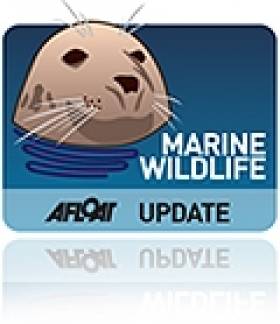Displaying items by tag: marine pollution
Covid-19 PPE Waste Posed "Lethal Threat to Nature" - New Study
Covid-19 personal protective equipment has posed a “lethal threat to nature”, a new study by scientists involving Britain’s Natural History Museum (NHM) has found.
Billions of face masks and gloves produced for protection from the virus are making plastic pollution “an even greater issue”, the study has said.
While no longer as “prevalent” as they once were, the disposable masks and gloves could stay in the environment for “tens if not hundreds of years”, it warns.
Entanglements were one of the most prevalent threats, with some animals being killed after becoming caught in the plastic debris, the study drawing on community science observations from around the world has noted.
The paper’s co-author, NHM principal curator and curator in charge of birds at the museum Dr Alex Bond, says that “we really don't know how big a problem pandemic waste could be”.
“As many areas of the world had restrictions on non-essential movement, we will never be able to know the true extent of the issue, but this study gives us a snapshot into the sheer diversity of species that were affected,” he says.
The study captures only 114 observations from around the world, representing “just a fraction of the much larger impacts of COVID-19 waste on wildlife”.
At the pandemic’s height, estimated global demand was for over 129 billion disposable masks per month.
“We filter out most litter in our environment, as it represents examples such as crisp packets or cigarette butts that we've seen for years or decades,” Dr Bond explains.
“When PPE [personal protective equipment] flooded our waste management systems in the early days of the pandemic, it was a lot more obvious because it was new,” he says.
“Now we don't even flinch when we see a blue face mask on the ground. It's rapidly become part of our everyday experience of waste in our environment,” he says.
The EU should review the materials used in plastic bag manufacture and encourage greater usage of biodegradable carrier bags to prevent further marine environmental damage, according to Jim Higgins MEP, following a vote by the European Parliament on the issue this week.
This week, MEPs backed ambitious targets which will oblige Member States to reduce their use of light plastic bags, first by half, and then up to 80 per cent as compared to the average EU consumption in 2010 within at least 5 years.
This is good news for the marine environment according to MEP Higgins: "60-80 per cent of all marine litter is plastic material, scattered across all the world's oceans. The seabed closest to coastal regions can be most contaminated, especially with debris from carrier bags.
"The sheer volume of plastic waste and its durability is causing havoc for marine life which gets entangled in it or ingests the debris. There is also some evidence to suggest that chemicals from the materials present a toxic hazard for marine life and seawater quality.
"The durability and hard-wearing nature of plastic that makes it so useful also makes it problematic for environmental reasons as it takes so long to degrade. While some initiatives to reduce our reliance on plastic and increase recycling are positive, such as the plastic bag charge and more reusable shopping bags, we need to review the actual materials being used by manufacturers," Mr Higgins continued.
"An in-depth study by the University of Plymouth on the degradation of plastic carrier bags in a realistic marine environment showed that compostable plastic disappeared between 16-24 weeks, whereas 98 per cent of all other plastic remained after 40 weeks. One possible remedy proposed by the scientists behind the study is increasing our use of biodegradable carrier bags."
The Midlands North West MEP highlighted a recent success story in Italy: "Thanks to the use of biodegradable-compostable bags combined with a restriction of other types of bags, Italy has halved its plastic bag consumption since 2011. This is a trend that could apply to the entire EU under the right conditions."





























































